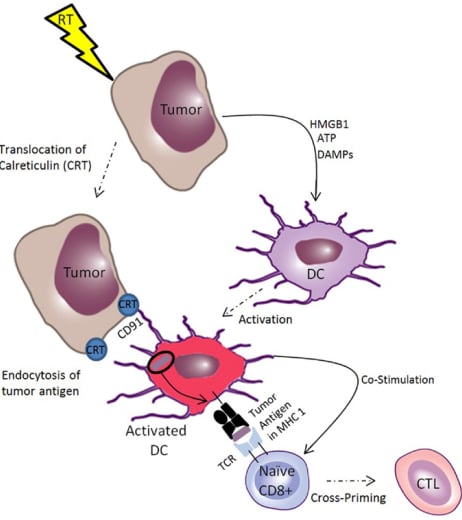Stage 4 Mesothelioma
Stage 4 mesothelioma is the most advanced stage. In stage 4, the cancer cells have spread throughout the body. This is called metastasis. Treatment options are still available. Patients may choose treatment intended to prolong life or ease discomfort and symptoms.
Home » Leading National Mesothelioma Law Firm » Mesothelioma Cancer » Mesothelioma Stages » Stage 4 Mesothelioma
Stage 4 is the most advanced stage of mesothelioma. In this stage, the cancer has spread widely throughout the body. Patients with stage 4 mesothelioma do still have treatment options available, which can address discomfort and even extend life in some patients.
What Is Stage 4 Mesothelioma?
In general, stage 4 cancers are usually defined by the presence of metastasis, or the spread of cancer cells throughout the body. If any cancer cells are found in organs distant from the area where the cancer first developed, then the cancer is in stage 4.
In some cases, a cancer may also be defined as stage 4 if the local spread of the disease is very extensive.
Stage 4 Pleural Mesothelioma
Pleural mesothelioma is the only type of mesothelioma with an official, formally defined staging system. This system, called the TNM system, was developed by the International Association for the Study of Lung Cancer and has been officially accepted by the American Joint Committee on Cancer. It was most recently updated in 2016 to reflect new research on how various factors affect outcomes for patients with mesothelioma.
Pleural mesothelioma is defined as being in stage 4 if patients have one of the following:
- Metastasis, meaning that cancer cells are found in any part of the body that is not adjacent to the pleura
- Extension of the primary tumor into the spine, nerves, heart, ribs, esophagus or any other organ in the center of the chest, or through the diaphragm into the abdomen
Stage 4 Peritoneal Mesothelioma

For peritoneal mesothelioma, many doctors use the modified TNM system, which has only three stages. Peritoneal mesothelioma that has spread to lymph nodes or metastasized to distant organs would be classified in stage 3, the most advanced stage, under this system. This is a somewhat unusual cancer staging system in having just three stages rather than four.
Because most cancers are defined as being in stage 4 if there is metastasis to distant organs, some doctors may classify metastatic peritoneal mesothelioma as stage 4.
Diagnosis of Stage 4 Mesothelioma
The clinical stage of a cancer refers to the stage that is determined by various tests that doctors use during the diagnostic process. A few different pieces of information can be useful in diagnosing a cancer as stage 4:

The physical exam. A doctor may discover signs that indicate the presence of one or more tumors in distant areas of the body. Other tests will be needed to confirm that there is cancer present at these distant sites.
Imaging studies.
- Using the results of a CT scan and/or MRI, doctors can look for evidence of tumors in various parts of the body. If tumors are discovered at sites away from the initial tumor, this is an indication that the cancer is in stage 4.
- A positron emission tomography scan (PET scan) is a particular type of imaging study that uses a tracer to look for cancer cells around the body. It can allow doctors to discover very small metastatic tumors.
Biopsy results. As part of the process of mesothelioma diagnosis, one or more biopsies are taken. If mesothelioma cells are found on a biopsy of a site away from the site where the tumor first developed, then the cancer is in stage 4.
In some cases, information may be discovered during a surgical procedure that changes the stage of the cancer. For example, for patients having surgery, tissue samples are generally taken during the procedure and sent to a pathologist for analysis. If cancer is found in these samples, then the stage of the cancer may need to be adjusted. This is referred to as the pathological stage.
For some patients who are in an earlier clinical stage, tissue samples taken during surgery could reveal that the patient is in pathological stage 4. This could have an impact on the patient’s treatment plan.
Stage 4 Mesothelioma Life Expectancy
Life expectancy for patients with stage 4 pleural mesothelioma is about 12 months. Data from the American Cancer Society indicates that the five-year survival rate for those with pleural mesothelioma that has spread to distant organs (meaning that it’s in stage 4) is eight percent.
The stage of the cancer is not the only influence on life expectancy after a mesothelioma diagnosis. Other patient factors, such as age, also play a role. For example, a 40-year-old man with metastatic pleural mesothelioma has a life expectancy of four years, while for an 80-year-old man with the same disease, the life expectancy is only one year. Similarly, for patients with metastatic peritoneal mesothelioma, a 40-year-old man has a life expectancy of six years, while for an 80-year-old, it’s only two years.

Treatment for Stage 4 Mesothelioma
Even for patients with stage 4, there are still mesothelioma treatment options available. The intent of treatment is different for different patients. Some patients choose aggressive treatments intended to prolong life, while others prefer to receive only palliative care, which is focused on maintaining quality of life rather than extending life.
Stage 4 mesothelioma is considered unresectable, meaning that surgery to remove the cancer is not an option. Once mesothelioma cells have spread widely around the body, surgery will not be effective at removing the cancer. Instead, the treatment plan generally focuses on systemic options (such as chemotherapy), along with procedures intended to address the symptoms of the disease.
Stage 4 Pleural Mesothelioma Treatment Options
For patients with stage 4 pleural mesothelioma, treatment options may include:
For patients with stage 4 pleural mesothelioma, treatment options may include:
Systemic chemotherapy. This is delivered to the whole body through an IV. In most cases, a combination of multiple mesothelioma drugs is used; the most common combination is pemetrexed, along with either cisplatin or carboplatin. Systemic chemotherapy is generally the mainstay of mesothelioma treatment for patients in stage 4.
- In some cases, chemotherapy is intended to eliminate as much of the cancer as possible and prolong the patient’s life.
- In other cases, chemotherapy is used for palliative care in order to reduce symptoms by shrinking tumors that are causing discomfort. The risk of side effects from the treatment must be balanced with the benefits of addressing symptomatic tumors.
Immunotherapy. This is a newer treatment option that uses the body’s own immune system to target and destroy cancer cells. The FDA has approved two immunotherapy regimens (Keytruda and Opdivo plus Yervoy) for treating patients with unresectable malignant pleural mesothelioma. Immunotherapy can have significant side effects, but some patients have gotten very good results from this treatment.

Tumor treating fields (TTF). This device was FDA approved in 2019 for treating patients with unresectable malignant pleural mesothelioma. It uses alternating electrical currents that are passed through the skin in order to disrupt the ability of the tumor cells to divide and grow. When used along with chemotherapy, TTF has been shown to improve survival to about 18 months with very few side effects.
Palliative surgical procedures. There are a few different procedures that may be used to help improve quality of life in patients with stage 4 pleural mesothelioma, including:
- Thoracentesis. This is used to drain the fluid from a pleural effusion, which is a fluid buildup around the lungs that can cause symptoms like shortness of breath. A doctor uses a needle inserted through the chest wall to drain out the fluid. In some cases, a catheter may be left in place. This is a long flexible tube that allows fluid to be drained from the chest cavity on a regular basis.
- Pleurodesis. In this procedure, a doctor places a medication in between the two layers of the pleura to cause them to adhere to each other, so that fluid cannot accumulate in this space. This is used for patients who experience repeated pleural effusions.
- Tumor removal. Although surgery is not considered to be curative in stage 4, removal of particular tumors that are causing significant symptoms may sometimes be performed. For example, if a tumor is putting pressure on an airway and making breathing difficult, removing this tumor may improve quality of life.

Palliative radiation therapy. Although radiation therapy is generally not used to extend life in stage 4 mesothelioma patients, it can be useful to target particular tumors that are causing significant symptoms.
Clinical trials. A clinical trial is a research study of a medical treatment. There are many clinical trials currently underway to study new ways of treating mesothelioma. Participating in a clinical trial can give some patients early access to a novel treatment modality with the potential to extend life. You can search the National Cancer Institute’s database to find trials for which you may be eligible.
Other treatments may also be used to help control symptoms, including prescription medications and physical or occupational therapy.
Stage 4 Peritoneal Mesothelioma Treatment Options
For patients with metastatic peritoneal mesothelioma, treatment options may include:
Systemic chemotherapy, given through an IV to the whole body. As with pleural mesothelioma, this is usually the mainstay of treatment for patients with metastatic peritoneal mesothelioma. It’s common for patients to receive more than one chemotherapy drug at the same time.
Palliative surgical procedures, which may include:
- Paracentesis, in which a doctor inserts a needle through the abdominal wall to drain the fluid of ascites, which is fluid buildup in the abdominal cavity.
- Tumor removal. As with pleural mesothelioma, surgical removal of specific tumors may help to relieve symptoms. For example, if a tumor is causing an intestinal blockage, then removing it may significantly improve the patient’s quality of life.
- Palliative radiation therapy can also be used to target particular tumors that are causing significant symptoms.
- Clinical trials. Some patients with advanced peritoneal mesothelioma choose to enroll in a clinical trial in order to try a new treatment modality.
Certain treatment options, like immunotherapy and tumor treating fields, are approved for pleural mesothelioma but are still considered experimental for peritoneal mesothelioma.
Each patient’s treatment plan will be somewhat different depending on their specific needs and medical situation. Patient preferences are also important; some patients prefer to receive aggressive treatments in order to extend life as much as possible, while others choose to receive palliative care and focus on quality of life in their remaining time. Your oncologist will discuss your treatment plan with you and make recommendations for your particular case.
If you’re considering being part of a clinical trial, you should talk this over with your oncologist. Although many patients are attracted to the possibility of getting access to a cutting-edge treatment, it’s also important to consider the tradeoffs.
